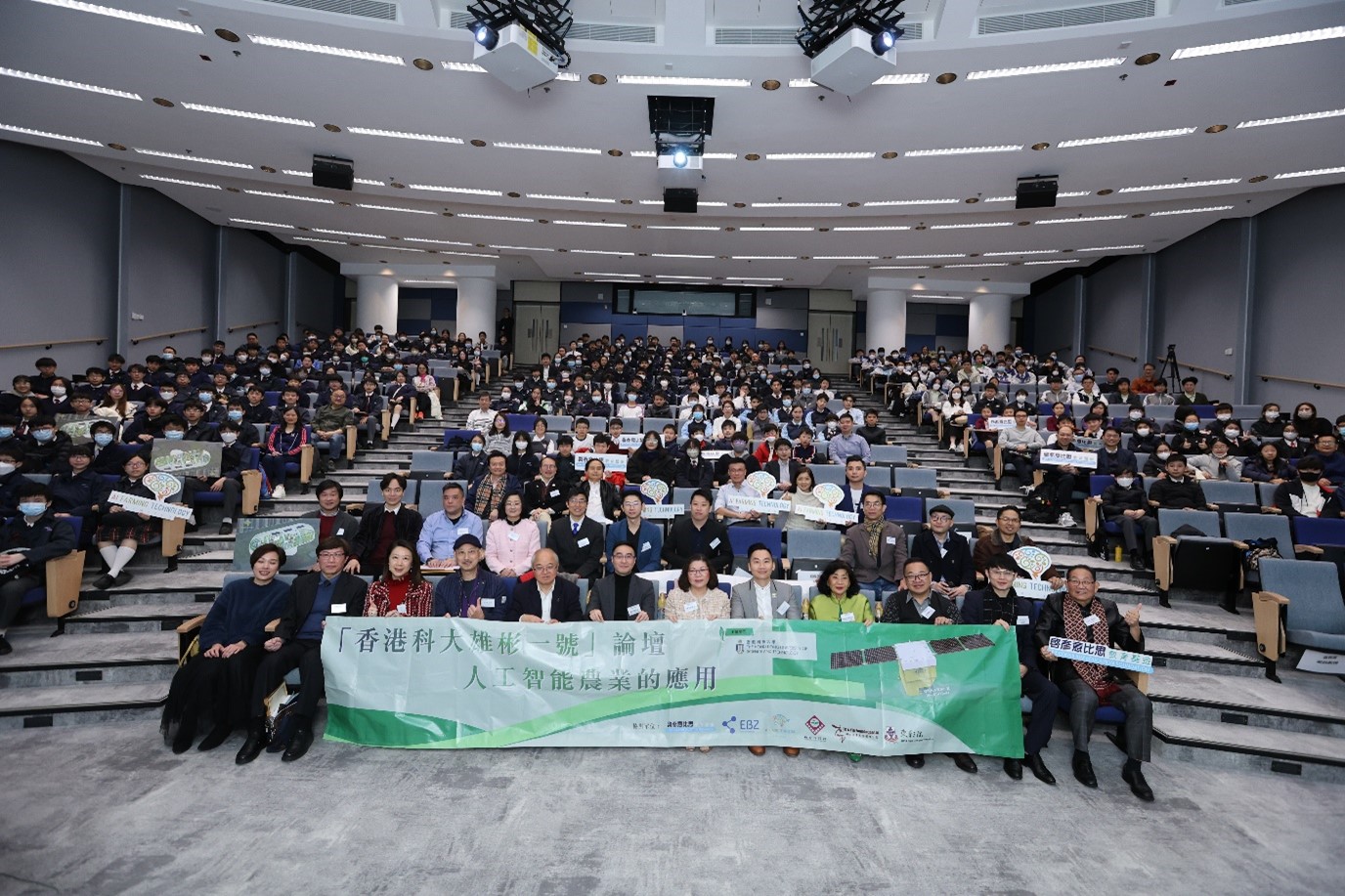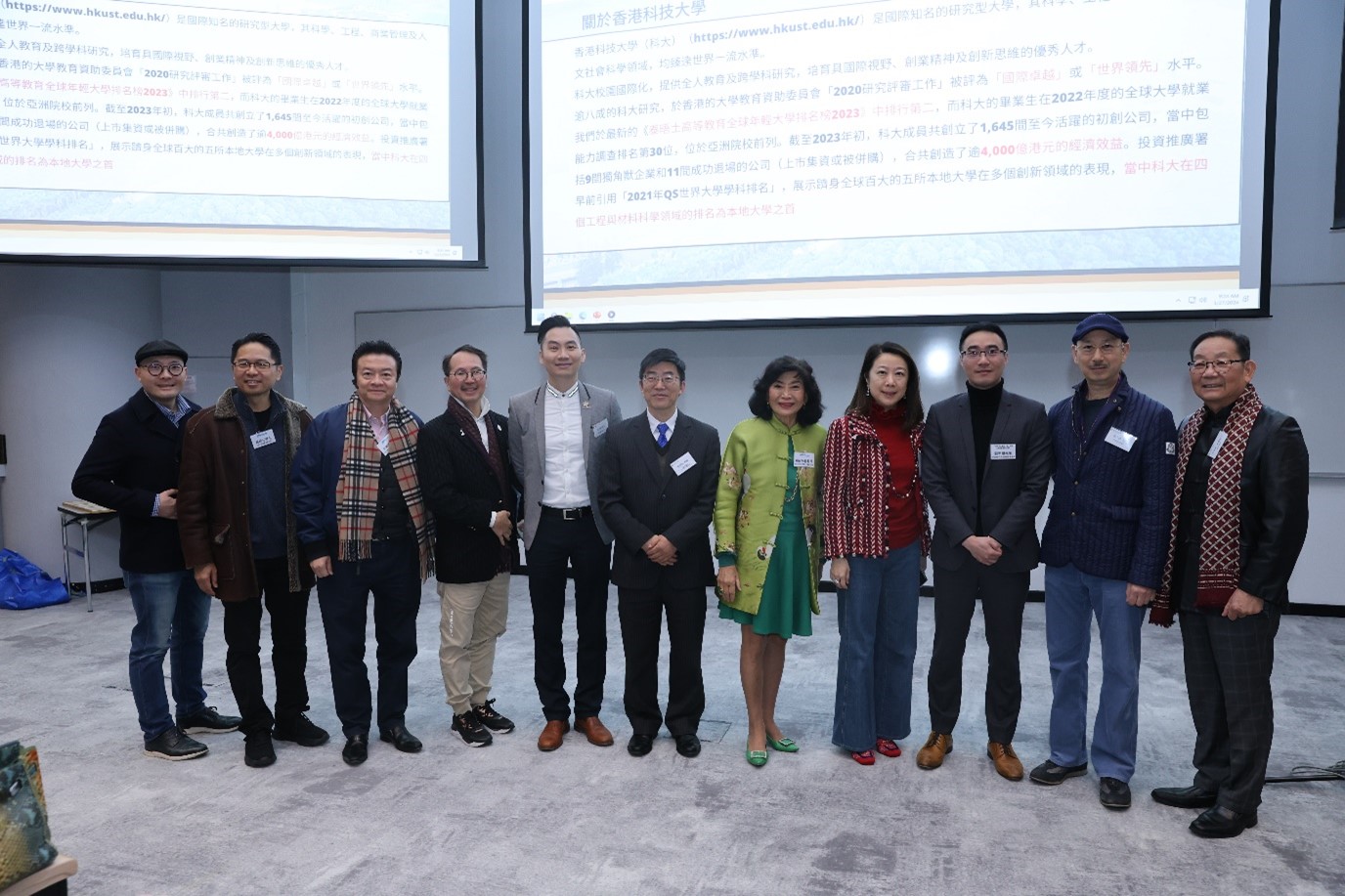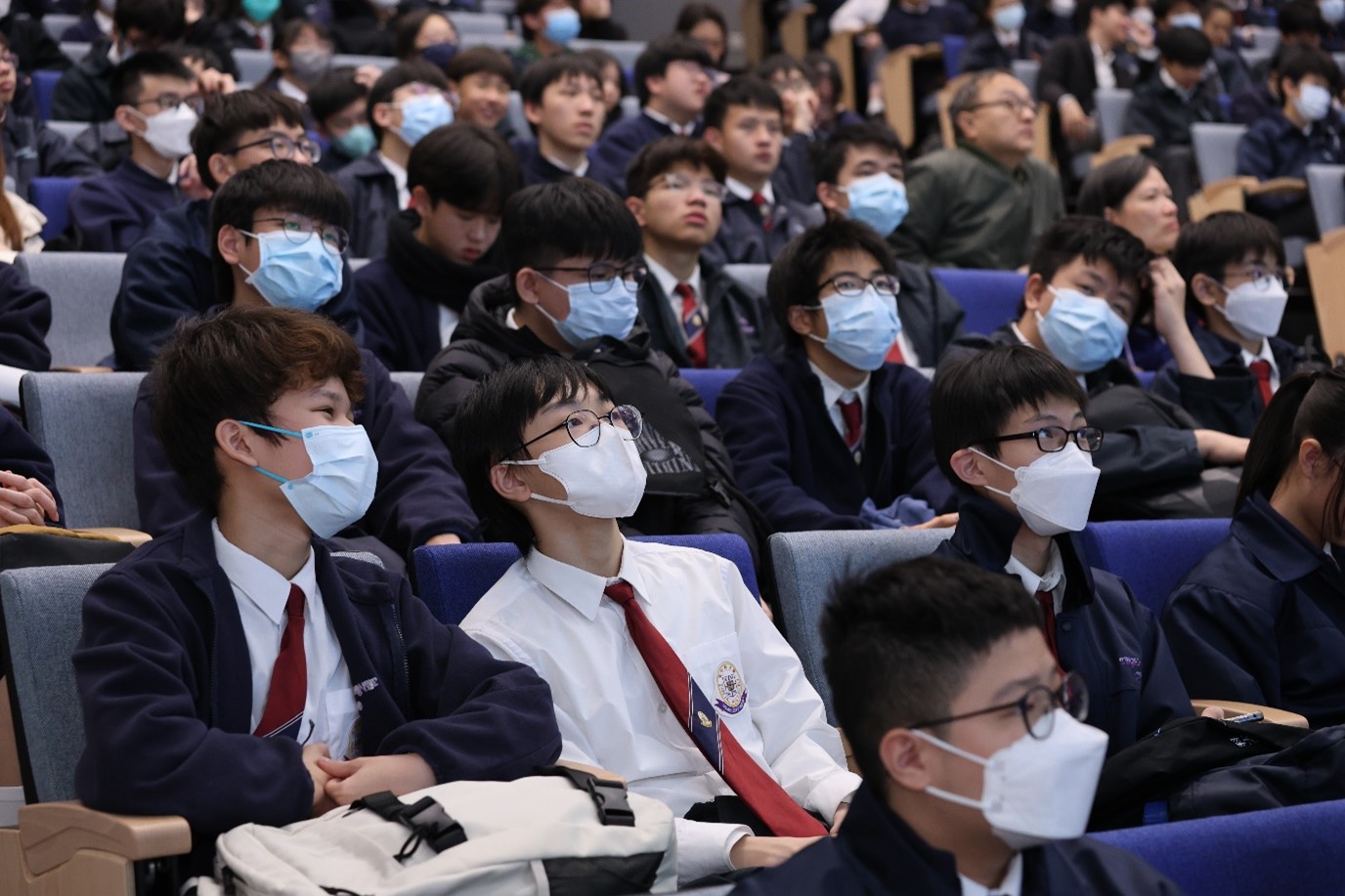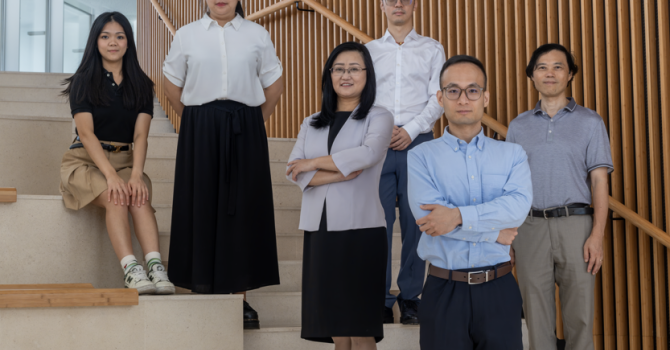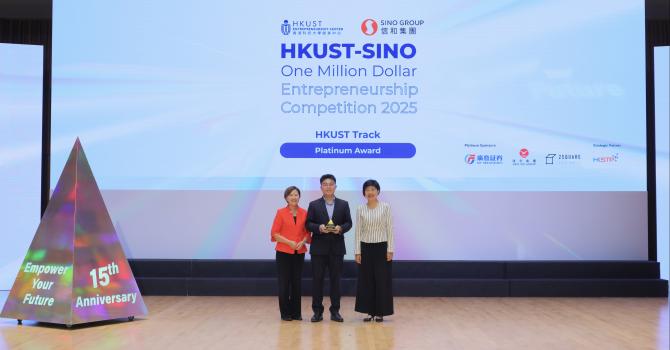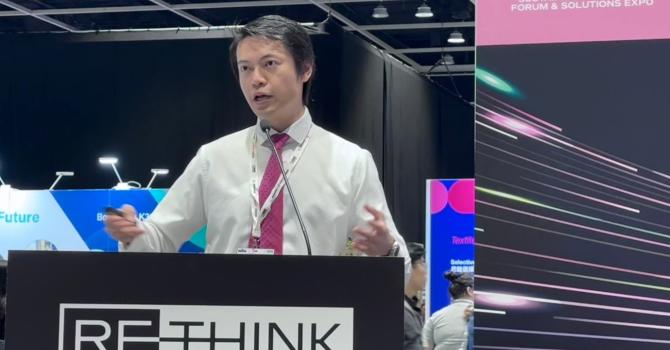HKUST-FYBB#1 Satellite Forum Illuminates the Importance of Technologies in Food Security, Environmental Protection and Disaster Preparedness
On January 27, the University proudly hosted the highly fascinating HKUST-FYBB#1 Satellite Forum, the purpose of which was to teach the younger generation in Hong Kong about how technologies can be applied to address issues regarding food security, environmental protection, and natural disaster preparedness — over 400 local secondary school students (along with academics and entrepreneurs) attended the exciting Forum. The event was co-organized by the University, the EBZ Consilium Education Foundation, the EBZ Group, AI Farming Technology, the New Territories School Heads Association, the FC&YIP Foundation Ltd. and the Tung Wah Group of Hospitals.
First to kick off the event were Prof. Wang Yang, Vice-President for Institutional Development of HKUST, Ms. Huang Yuhua, Chairman of the EBZ Consilium Education Foundation, and Hong Kong entrepreneur Mr. Yip Chi-hung, followed by Prof. Zhang Limin, Head of the Department of Civil and Environmental Engineering at HKUST, who, through a case study, shared with the audience the ways that humans may tap into the power of remote sensing satellites and artificial intelligence (AI) to analyze natural disasters. In particular, Prof. Zhang demonstrated how these technologies were used to rapidly assess and report the once-in-a-century “black” rainstorm that battered Hong Kong in September 2023.
Prof. Albert Wong, Associate Head and senior lecturer from the Department of Electronic and Computer Engineering at HKUST, spoke to the audience about the electronic engineering and AI aspects of the HKUST-FYBB#1 Satellite project. Next, Prof. Su Hui, STEM Professor at HKUST, introduced the features and applications of the HKUST-FYBB#1 Satellite, highlighting its broad uses in providing early warnings for disasters, as well as for environmental monitoring and digital agriculture, particularly emphasizing the importance of satellite data in accurately projecting agricultural production and promoting the green food industry. Mr. Philip Ng, Chairman of the EBZ Group and AI Farming, then showcased AI Farming and the EBZ Consilium Education Foundation’s “Less Water, More Food” project in Togo, Africa, especially how the project is currently helping to solve food shortage and human trafficking problems in that country. The presentation demonstrated how satellite monitoring enables sustainable land management practices through soil condition assessment and optimized water usage - knowledge crucial for future agricultural development.
During the discussion and Q&A session that followed, the young audience not only showed interest but actively engaged in learning more about space satellite technology and AI in agriculture. All in all, the Forum successfully highlighted the importance of collaboration between academia, governments and businesses in order to better address global challenges through technological innovations. HKUST and its partners look forward to working closely together (including and especially through cross-border collaborations) to further promote sustainable development through educational outreach programs that empower local communities with knowledge of sustainable agricultural land management techniques.
